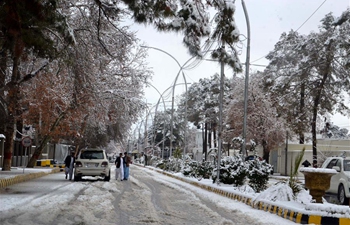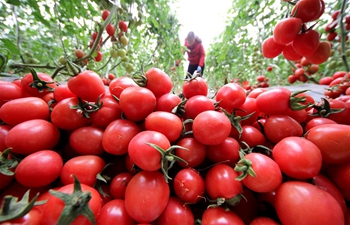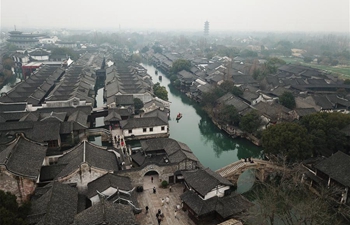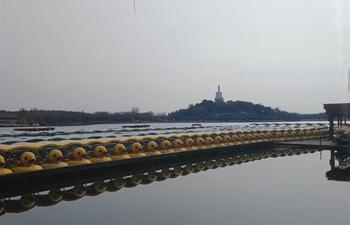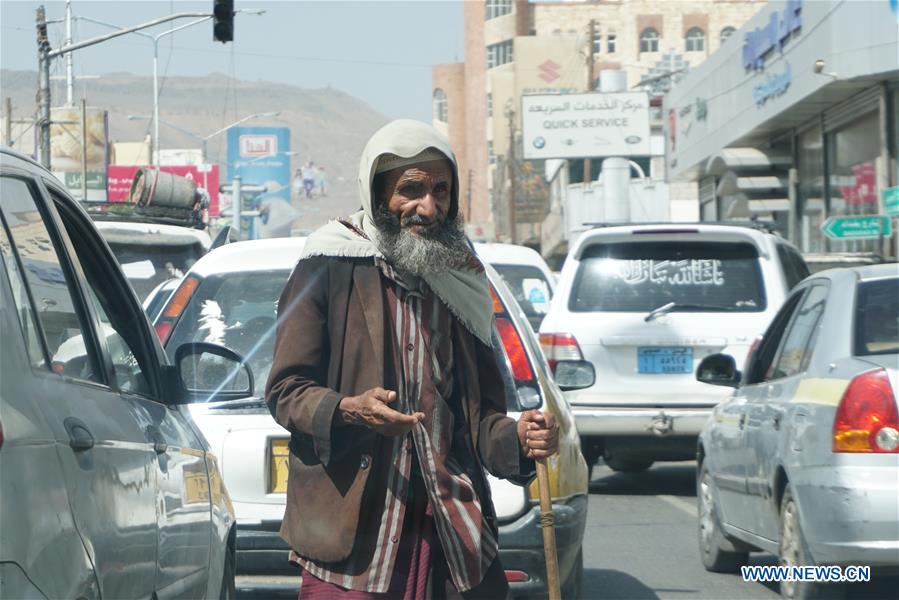 ?
?A Yemeni man begs on a street in Sanaa, Yemen, on March 4, 2019. Trying to find a job or selling cheap products to secure the next meal is getting much harder in the besieged Yemeni capital Sanaa and other war-devastated cities, where more than 20 million Yemenis are on the brink of starvation as a fragile peace deal could spiral back to a full-scale war. (Xinhua/Mohamed al-Azaki)
by Mohamed Azaki
SANAA, March 4 (Xinhua) -- Trying to find a job or selling cheap products to secure the next meal is getting much harder in the besieged Yemeni capital Sanaa and other war-devastated cities, where more than 20 million Yemenis are on the brink of starvation as a fragile peace deal could spiral back to a full-scale war.
"We, the people, demand peace as the country could not endure further wars," said Abdul Razak Abdullah, resident of Sanaa, who lost his job because of the war and now spends hours each morning to look for a work that could earn him some cash to feed his seven children.
"Economic situations are badly worsening ... peace will provide job opportunities to millions of people ... but if peace collapses, millions could starve to death," Abdullah added.
University student Anwar Salah al-Ward said that if peace process resumes in Hodeidah, the economic situations will get improved.
"Our situations are very bad ... I hope peace process can be salvaged in Hodeidah to pave way for a comprehensive political solution," al-Ward, who had stopped studying in the university and turned to the street to search for a job to help his family.
UN Special Envoy to Yemen Martin Griffiths has been shuttling between the rebel Houthi movement in Sanaa and the exiled government in Riyadh amid efforts to salvage the deal that intends to clear the way for wider negotiations to end the devastating war.
British Foreign Secretary Jeremy Hunt warned in his last week's visit to the Yemeni southern city of Aden, which is under government control, that the two rival sides were now in the "last chance saloon."
The Saudi-led military coalition intervened in Yemen in March 2015 to support the government of President Abd-Rabbu Mansour Hadi after Houthi rebels forced him into exile and seized much of the country's north, including the capital Sanaa and Hodeidah.
The four-year civil war has worsened the humanitarian situations and triggered what the UN calls the world's most humanitarian catastrophe in Yemen.
The war has destroyed the country's economy, education, health system and all other infrastructure, affecting the whole country and cutting salaries of hundreds of thousands of civil servants for more than three years.
Thousands are suffering from diseases and millions more are struggling to secure one meal a day amid high food prices and commercial blockades.
The warring parties reached the peace deal in Stockholm last December brokered by the UN. The cease-fire deal went into force on Dec. 18, 2018, but the withdrawal of the rival forces has yet to be fulfilled.
Clashes escalated this week in several areas of Hodeidah as the Houthi rebels fortify themselves inside the city while the government troops have been massing on the southern and eastern outskirts.







